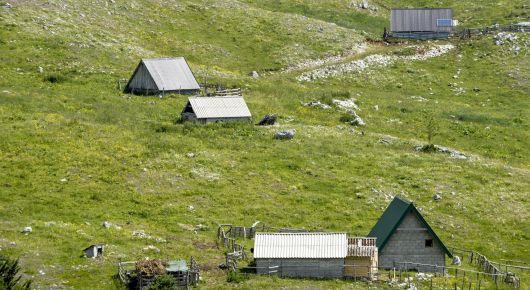Connecting traditional with modern for more resilience and sustainability in agriculture

Countries of the vast and diverse Europe and Central Asia region receive guidance on an eco-friendly transformation of their agrifood systems.
Current agricultural systems of the region are extremely polarized with large-scale intensive agriculture and smallholder farming being at opposite ends. A new approach, called nature-based solutions, can help integrate both modalities, while facing current social challenges, and making use of scientific and technological advances in collaboration with nature, thus transforming agriculture.
The FAO publication Hand-in-hand with nature was developed to bring together, for the first time, modern technological innovations on sustainable agriculture and centuries-old agricultural nature-based solutions preserved by local communities.
“In Europe and Central Asia, food security and livelihoods face multiple challenges; however, the strengths of its agricultural systems are much greater than their weaknesses,” said Tania Santivanez, FAO agricultural officer. “Agricultural nature-based solutions boldly highlight these strengths, encouraging agricultural transformation by recognizing and improving these practices and techniques with scientific-based evidences and modern technology.”
The publication explains the concept not only through the lens of science, but also by giving real-life, proven examples of its successful application aimed at addressing climate change, soil and water scarcity, biodiversity loss, and landscape degradation. These examples have been providing food and livelihood for local communities and indigenous people for centuries, and are now recognized by FAO as Globally Important Agricultural Heritage Systems (GIAHS).
To this end, FAO recommends to identify and recognize already existing traditional eco-friendly agricultural systems involving livestock, grazing and breeding, cropping, fishery, agroforestry, and others and, subsequently, to integrate these into a comprehensive system based on scientific evidence.
“This complex mix of the traditional and science-based modalities has the potential to improve agroecosystems management, and restore already degraded landscapes and ecosystems,” added Marta Arnes Garcia, FAO expert on GIAHS and nature-based solutions.
Earlier, an FAO webinar marked the first step of introducing and promoting natural-based solutions, including agricultural heritage systems, in Europe and Central Asia.
The publication is part of FAO’s overarching work on sustainable natural resource management and biodiversity.
14 July 2021, Budapest, Hungary
